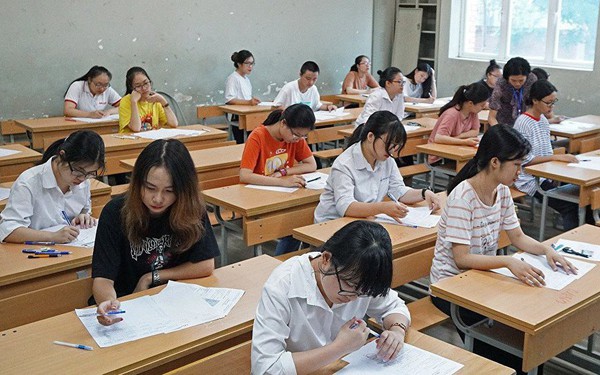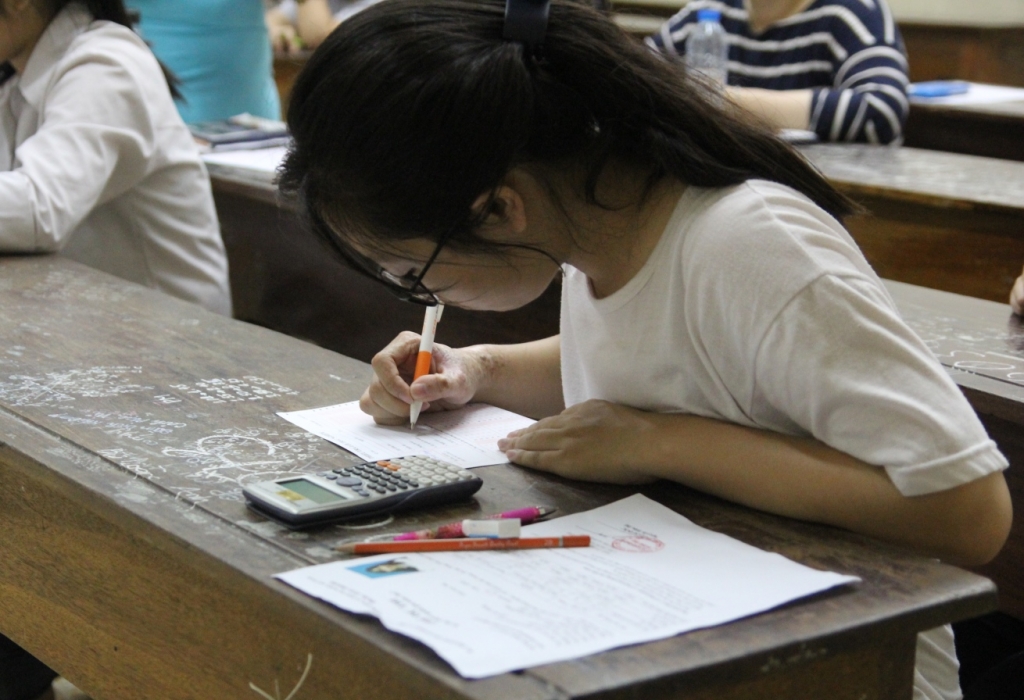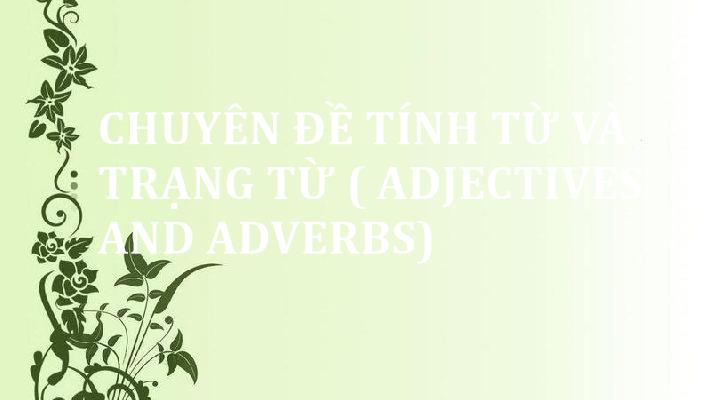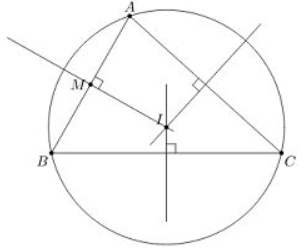PHẦN 1. LÝ THUYẾT
Từ Vựng
- celebration (n) lễ kỷ niệm
- celebrate (v) làm lễ kỷ niệm
- Easter (n) lễ Phục Sinh
- Lunar New Year Tết Nguyên Đán
- wedding (n) đám cưới
- throughout (prep) suốt
- occur (v): happen/ take place xảy ra, diễn ra
- decorate (v) trang trí
- decoration (n) sự trang trí
- sticky rice cake bánh tét
- be together: gather tập trung
- apart (adv) cách xa
- Passover (n) Lễ Quá Hải (của người Do Thái)
- Jewish (n) người Do Thái
- freedom (n) sự tự do
- slave (n) nô lệ
- slavery (n) sự nô lệ
- as long as miễn là
- parade (n) cuộc diễu hành
- colorful (a) nhiều màu, sặc sỡ
- crowd (v) tụ tập
- crowd (n) đám đông
- crowded (a) đông đúc
- compliment (n) lời khen
- compliment so on sth khen ai về việc gì
- well done Giỏi lắm, làm tốt lắm
- congratulate so on sth chúc mừng ai về
- congratulation lời chúc mừng
- Congratulations! Xin chúc mừng
- first prize giải nhất
- contest (n) cuộc thi
- active (a) tích cực
- charity (n) việc từ thiện
- nominate (v) chọn
- activist (n) người hoạt động
- acquaintance (n) sự quen biết
- kind (a) tử tế
- kindness (n) sự tử tế
- trusty (a) đáng tin cậy
- trust (n) sự tin cậy
- express (v) diễn tả
- feeling (n) tình cảm, cảm xúc
- memory (n) trí nhớ
- lose heart mất hy vọng
- miss (v) nhớ, bỏ qua, trễ
- tear (n) nước mắt
- groom (n) chú rể
- hug (v) ôm
- considerate (a) ân cần, chu đáo
- generous (a) rộng lượng, bao dung
- generosity (n) tính rộng lượng, sự bao dung
- priority (n) sự ưu tiên
- sense of humour tính hài hước
- humourous (a) hài hước
- distinguish (v) phân biệt
- in a word: in brief/ in sum tóm lại
- terrific (a): wonderful tuyệt vời
- proud of tự hào, hãnh diện
- alive (a) còn sống
- image (n) hình ảnh
Ngữ Pháp
1. Định nghĩa mệnh đề quan hệ:
Mệnh đề (Clause) là một phần của câu, nó có thể bao gồm nhiều từ hay có cấu trúc của cả một câu. Mệnh đề quan hệ dùng để giải thích rõ hơn về danh từ đứng trước nó.
Xét ví dụ sau:
The woman who is wearing the T-shirt is my girlfriend.
Trong câu này phần được viết chữ nghiêng được gọi là một relative clause, nó đứng sau “the woman” và dùng để xác định danh từ đó. Nếu bỏ mệnh đề này ra chúng ta vẫn có một câu hoàn chỉnh:
The woman is my girlfriend.
2. Các dạng mệnh đề Quan hệ
A. Relative Pronouns - Đại từ quan hệ
.png)
Mệnh đề quan hệ - Relative Clauses
Mệnh đề quan hệ trong tiếng anh (mệnh đề tính từ) bắt đầu bằng các đại từ quan hệ: who, whom, which, that, whose hay những trạng từ quan hệ: why, where, when. Mệnh đề quan hệ dùng để bổ nghĩa cho danh từ đứng trước nó.
. Các đại từ quan hệ:
1. WHO:
- làm chủ từ trong mệnh đề quan hệ
- thay thế cho danh từ chỉ người
● ... N (person) + WHO + V + O
2. WHOM:
- làm túc từ cho động từ trong mệnh đề quan hệ
- thay thế cho danh từ chỉ người
● ... N (person) + WHOM + S + V
3. WHICH:
- làm chủ từ hoặc túc từ trong mệnh đề quan hệ
- thay thế cho danh từ chỉ vật
● ... N (thing) + WHICH + V + O
● ... N (thing) + WHICH + S + V
4. THAT:
- có thể thay thế cho vị trí của who, whom, which trong mệnh đề quan hệ quan hệ xác định
* Các trường hợp thường dùng “that”:
- khi đi sau các hình thức so sánh nhất
- khi đi sau các từ: only, the first, the last
- khi danh từ đi trước bao gôm cả người và vật
- khi đi sau các đại từ bất định, đại từ phủ định, đại từ chỉ số lượng: no one, nobody, nothing, anyone, anything, anybody, someone, something, somebody, all, some, any, little, none.
Ex: He was the most interesting person that I have ever met.
It was the first time that I heard of it.
These books are all that my sister left me.
She talked about the people and places that she had visited.
* Các trường hợp không dùng that:
- trong mệnh đề quan hệ không xác định
- sau giới từ
5. WHOSE: dùng để chỉ sở hữu cho danh từ chỉ người hoặc vật, thường thay cho các từ: her, his, their, hoặc hình thức ‘s
...N (person, thing) + WHOSE + N + V ...
. Các trạng từ quan hệ
1. WHY: mở đầu cho mệnh đề quan hệ chỉ lý do, thường thay cho cụm for the reason, for that reason.
...N (reason) + WHY + S + V ...
Ex: I don’t know the reason. You didn’t go to school for that reason.
→ I don’t know the reason why you didn’t go to school.
2. WHERE: thay thế từ chỉ nơi chốn, thường thay cho there
...N (place) + WHERE + S + V ...
(WHERE = ON / IN / AT + WHICH)
Ex: a/ The hotel wasn’t very clean. We stayed t that hotel.
→ The hotel where we stayed wasn’t very clean.
→ The hotel at which we stayed wasn’t very clean.
3. WHEN: thay thế từ chỉ thời gian, thường thay cho từ then
...N (time) + WHEN + S + V ...
(WHEN = ON / IN / AT + WHICH)
Ex: Do you still remember the day? We first met on that day.
→ Do you still remember the day when we first met?
→ Do you still remember the day on which we first met?
I don’t know the time. She will come back then. → I don’t know the time when she will come back.
Cách làm bài tập về mệnh đề quan hệ
III. Các loại Mệnh đề quan hệ
Có hai loại mệnh đề quan hệ: mệnh đề quan hệ xác định và mệnh đề quan hệ không xác định.
1. Mệnh đề quan hệ xác định (Defining relative clauses): là mệnh đề được dùng để xác định danh từ đứng trước nó. Mệnh đề xác định là mệnh đề cần thiết cho ý nghĩa của câu, không có nó câu sẽ không đủ nghĩa. Nó được sử dụng khi danh từ là danh từ không xác định và không dùng dấu phẩy ngăn cách nó với mệnh đề chính.
2. Mệnh đề quan hệ không hạn định (Non-defining relative clauses): là mệnh đề cung cấp thêm thông tin về một người, một vật hoặc một sự việc đã được xác định. Mệnh đề không xác định là mệnh đề không nhất thiết phải có trong câu, không có nó câu vẫn đủ nghĩa. Nó được sử dụng khi danh từ là danh từ xác định và được ngăn cách với mệnh đề chính bằng một hoặc hai dấu phẩy (,) hay dấu gạch ngang (-)
Ex: Dalat, which I visited last summer, is very beautiful. (Non-defining relative clause)
Note: để biết khi nào dùng mệnh đề quan hệ không xác định, ta lưu ý các điểm sau:
- Khi danh từ mà nó bổ nghĩa là một danh từ riêng
- Khi danh từ mà nó bổ nghĩa là một tính từ sở hữu (my, his, her, their)
- Khi danh từ mà nó bổ nghĩa la một danh từ đi với this , that, these, those
. Một số lưu ý trong mệnh đề quan hệ
1. Nếu trong mệnh đề quan hệ có giới từ thì giới từ có thể đặt trước hoặc sau mệnh đề quan hệ (chỉ áp dụng với whom và which.)
Ex: Mr. Brown is a nice teacher. We studied with him last year.
→ Mr. Brown, with whom we studied last year, is a nice teacher.
→ Mr. Brown, whom we studied with last year, is a nice teacher.
2. Có thể dùng which thay cho cả mệnh đề đứng trước.
Ex: She can’t come to my birthday party. That makes me sad. → She can’t come to my birthday party, which makes me sad.
3. Ở vị trí túc từ, whom có thể được thay bằng who.
Ex: I’d like to talk to the man whom / who I met at your birthday party.
4. Trong mệnh đề quan hệ xác định , chúng ta có thể bỏ các đại từ quan hệ làm túc từ:whom, which.
Ex: The girl you met yesterday is my close friend. The book you lent me was very interesting.
5. Các cụm từ chỉ số lượng some of, both of, all of, neither of, many of, none of … có thể được dùng trước whom, which và whose.
Ex: I have two sisters, both of whom are students. She tried on three dresses, none of which fitted her.
Cách rút gọn mệnh đề quan hệ:
1. Mệnh đề quan hệ được rút thành cụm phân từ:
Mệnh đề quan hệ chứa các đại từ quan hệ làm chủ từ who, which, that có thể được rút gọn thành cụm hiện tại phân từ (V-ing) hoặc quá khứ phân từ (V3/ed).
* Nếu mệnh đề quan hệ là mệnh đề chủ động thì rút thành cụm hiện tại phân từ (V-ing).
a/ The man who is standing over there is my father.
→ The man standing over there is my father.
b/ The couple who live next door to me are professors.
→ The couple living next door to me are professors.
* Nếu mệnh đề quan hệ là mệnh đề bị động thì rút thành cụm quá khứ phân từ (V3/ed). Ví dụ:
a/ The instructions that are given on the front page are very important.
→ The instructions given on the front page are very important.
b/ The book which was bought by my mother is interesting.
→ The book bought by my mother is interesting.
2. Mệnh đề quan hệ được rút thành cụm động từ nguyên mẫu:
Mệnh đề quan hệ được rút thành cụm động từ nguyên mẫu (To-infinitive) khi trước đại từ quan hệ có các cụm từ: the first, the second, the last, the only hoặchình thức so sánh bậc nhất. Ví dụ
a/ John was the last person that got the news.
→ John was the last person to get the news.
b/ He was the best player that we admire.
→ He was the best player to be admired.
c/ He was the second man who was killed in this way.
→ He was the second man to be killed in this way.
PHẦN 2. BÀI TẬP
EXERCISE 141
Change these sentences to incorporate the expression in parentheses. Biến đổi những câu này nhằm kết hợp với những từ ngữ nằm trong ngoặc đơn.
1. Dispite his dislike for coffee, he drank it to keep himself warm (although).
2. Bill will take a plane, even though he dislikes flying (in spite of).
3. In spite of Alice’s sadness at losing the contest, she managed to smile (although).
4. They took many pictures though the sky was cloudy (despite).
5. Despite his poor memory, the old man told interesting stories to the children (even though).
EXERCISE 142
Change these sentences to incorporate the expression in parentheses. Biến đổi những câu này nhằm kết hợp với những từ ngữ nằm trong ngoặc đơn.
1. Though he has been absent frequently, he has managed to pass the test (in spite of).
2. Jane told me the secret, despite having promised not to do so (though).
3. Fred plas to buy a ticket for the drawing although he knows he will not win a prize (even though).
4. In spite of the high prices, my girl friend insists on going to the circus every Sundays (even though).
5. Mr Allen ate the chocolate cake even though he is on a diet (in spite of).
EXERCISE 143
Complete these sentences. Each time use Although + a sentence from the box. Điền thêm vào những câu này. Cứ mỗi lần sử dụng Athough đều phải kèm theo một câu có trong khung.
I didn’t speak the local language. They don’t like him very much.
She had never seen him before. He had promised to be on time.
It was rather cold.
1. Athough ……………………she recognized him from a photograph.
2. The baby boy didn’t wear a heavy-sweater ………………………
3. They thought they’d better invite him to the meeting ……………………..
4. …………………. I managed to make myself understood.
5. …………………., he was late.
EXERCISE 144
Complete these sentences. Each time use Although + a sentence from the box. Điền thêm vào những câu này. Cứ mỗi lần sử dụng Although đều phải kèm theo một câu có trong khung.
Mrs Green had all the necessary qualifications. The traffic was bad.
It rained a lot. I was very tired.
He smokes 30 cigarettes a day.
1. ……………………………………I arrive in time.
2. I couldn’t sleep …………………………………..
3. ………………………………..they enjoyed their holiday.
4. She didn’t get the job, ………………………………….
5. ………………………………..he is quite fit.
EXERCISE 145
Complete these sentences with although or in spite of. Điền thêm vào những câu này với although hoặc in spite of.
1................................................ it was sunny a lot, we enjoyed ourselves.
2............................................... at my careful plans, a lot of things went wrong.
3............................................... they had planned everything carefully, a lot of things went wrong.
4. She love music..................................................................... she can’t play a musical instrument.
5............................................... being very tired, we carried on walking.
EXERCISE 146
Complete these sentences with although or in spite of. Điền thêm vào những câu này với although hoặc in spite of.
1................................................ the heating was full on, this house was still cold.
2. Henry decided to give up his job...................................... I advised him not to.
3. He wasn’t well,..................................................................... this he went to work.
4. I’m not tired....................... …………………..working hard all day.
5............................................... there was the traffic jam, but I arrived in time.
EXERCISE 147
Complete these sentences with even though, although or though. Điền thêm vào những câu này với even though, although hoặc though.
1............................................... I have to work all the way I’ll get there.
2. I like him............................ he can be annoying.
3............................................... he had only entered the contest for fun, he won first prize.
4. He said they were married.................................................. I’m sure they aren’t.
5. We all tired our best we lost the game.............................. .
EXERCISE 48
Choose the correct completion. (Chọn đúng từ thêm vào).
1. (Eventhough), (despite) his doctor warned him, George has continued to smoke nearly four packs of cigarettes a day.
2. (Eventhough), (despite) his doctor’s warnings, George has continued to smoke nearly four packs of cigarettes a day.
3. (Eventhough), (despite) the warnings his doctor gave him, George continutes to smoke.
4. (Eventhough), (despite) the fact that his doctor warned him of dangers to his health, George continues to smoke.
5. (Eventhough) , (despite) he has been warned about the dangers of smoking by his doctor, George continues to smoke.
EXERCISE 149
Choose the correct completion. Chọn đúng từ được thêm vào.
1. (Although), (in spite of) an approaching storm, the two climbers continued their trek up the mountain.
2. (Although), (in spite of) a storm was approaching, the two climbers continued their trek.
3. (Although), (in spite of) there was an approaching storm, the two climbers continued up the mountain.
4. (Although), (in spite of) the storm that was approaching the mountain area, the two climbers continued their trek.
5. (Although), (in spite of) the fact that a storm was approaching the mountain area, the two climbers continued their trek.
EXERCISE 150
Choose the correct completion. Chọn đúng từ được thêm vào.
1. The villagers refused to leave (enven though), (in spite of) the drought.
2. The villagers refuse to leave (even though), (in spite of) the drought seriously threatens their food supply.
3. The villagers refuse to leave (even though), (in spite of) the threat to their food supply because of the continued drought.
4. The villagers refuse to leave (even though), (in spite of) their food supply is threatened.
5. The villagers refused to leave (even though), (in spite of) their threatened food supply.
EXERCISE 151
Combine the following individual sentences into single sentences with realive clauses (defining). Kết hợp những câu riêng lẻ để tạo thành một câu duy nhất có sự hiện diện của mệnh đề lien hệ (hạn định).
1. George is the man. We are going to nominate George for the office of treasurer.
2. The doctor is with a patient. The patient’s leg was broken in an accident.
3. Janet is the woman. Janet is going to Mexico next year.
4. Paula wants a typewriter. The typewriter self-corrects.
5. This guide book contains some useful information. I found the guide book last month.
EXERCISE 152
Combine the following individual sentences into single sentences with relative clauses (defining). Kết hợp những câu riêng lẻ để tạo thành một câu duy nhất có sự hiện diện của mệnh đề liên hệ (hạn định).
1. Mr Atkin looks very eager. Mr Atkin’s team has won the game.
2. Fred wrote an article. The article indicate that he disliked the president.
3. The director of the program is planning to retire next year.
4. This is the atlas. I have been looking for this atlas all year.
5. Jack wants to become a judge. Jack’s father is a lawyer.
EXERCISE 153
Combine the following individual sentences into single sentences with relative clauses (defining). Kết hợp những câu riêng lẻ để tạo thành một câu duy nhất có sự hiện diện của mệnh đề liên hệ (hạn định).
1.This is the tape measure. I bought the tape measure at the department store.
2. Mike bought the stereo. The stereo had been advertised at a reduced price.
3. Kate bought a boat. The boat cost fifty thousand dollars.
4. John is going to buy the stand. We have been thinking of buying the stand.
5. Henry is the young man. I’m going to recommend Henry for the job.
EXERCISE 154.
Reduce the relatives clauses (defining) in the following sentences. Rut gọn mệnh đề tính từ (hạn định) trong những câu sau đây.
1. Brandy is the delegate who was chosen to represent the committee at the convention.
2. All of the money that was accepted has already been released.
3. The papers that are on the desk belong to Dick.
4. The gang who were brought tho the police station confessed to the crime.
5. The young woman is drinking coffee is Mary Allen.
EXERCISE 155
Reduce the relatives clauses (defining) in the following sentences. Rut gọn mệnh đề tính từ (hạn định) trong những câu sau đây.
1. Allen’s wife, who is a lady-teacher, has written several papers on this subject.
2. The woman who is talking to the police woman, is my aunt.
3. The reference book that is on the top shelf. Is the one that I need.
4. The number of fans who have been counted, is quite high.
5. Robert, who is an architect, eats in this restaurant every day.
EXERCISE 156
Explain what some words mean. Choose the right meaning from the list and then write a sentence with who.Giải thích sự việc mà một số từ đề cập dến. Chọn đúng nghĩa từ bản liệt kê rồi sau đó viết một câu có sự hiện diện của WHO.
He/she steals form a shop. He/she breaks into a house and steals things.
He/she doesn’t eat meat. He/she doesn’t drink alcohol.
He/she buys something from a shop.
1. (a customer)
2. (a teetotaller)
3. (a shoplifter)
4. (a burglar)
5. (a vegetarian)
EXERCISE 157
Explain what some words mean. Choose the right meaning from the list and then wrie a sentence with WHO. Giải thích sự việc mà một số từ muốn đề cập đến. CHọn đúng nghĩa từ bản liệt kê rồi sau đó viết một câu có sự hiện diện của WHO.
He/she works in a bank/an office. He/she draws paints or produces other works of art.
He/ she teachers at school. He/she has invented something.
He/she uses scientific knowledge
to design and construct machinery.
1. (an inventor)
2. (a teacher)
3. (a clerk)
4. (an artist)
5. (an engineer)
EXERCISE 158
Choose the most suitable ending from the list and make it into a relative clause. Chọn phần cuối thích hợp nhất ở bảng liệt kê rồi thành lập nó thành mệnh đề liên hệ.
He invented the telephone. They stole my motor bike.
He runs away frome home It makes typewriters.
it won the race.
1. Henry works for a company...............................................
2. What was the name of the horse........................................
3. The police have caught then men.......................................
4. The novel is about a boy.....................................................
5. Alexander Bell was the man...............................................
HƯỚNG DẪN GIẢI BÀI TẬP
EXERCISE 141
1. Although he disliked coffee, he drank it to keep himself warm.
2. Bill will take a plane, in spite of his dislike of flying.
3. Although Alice was sad after losing the contest, she managed to smile.
4. They took many pictures dispite the cloudy sky.
5. Even though he had a poor memory the old man told interesting stories to the children.
EXERCISE 142
1. In spite of his frequent absences, he has managed to pass the test.
2. Iane told me the secret though she had promised not to do so.
3. Fred plans to buy a ticket for the drawing even though he knows he will not win a prize.
4. Even though the prices are high, my girl friend insists on going to the circus every Sundays.
5. Mr Allen ate the chocolate cake in spite of his diet.
EXERCISE 143
1. Although she had never seen him before she recognized him from a photograph.
2. The baby boy didn’t wear a heavy sweater although it was rather cold.
3. They though they’d better invite him to the meeting although they don’t like him every much.
4. Although I didn’t speak the local language, I managed to make myself understood.
5. Although he had promised to be on time he was late.
EXERCISE 144
1. Although the traffic was bad, I arrive in time.
2. I couldn’t sleep although I was very tired.
3. Although it rained a lot they enjoyed their holiday.
4. Although Mrs Green had all the necessary qualifications, she didn’t get the job.
5. Although he smokes 30 cigarettes a day he is quite fit.
EXERCISE 145
1. although 2. in spite of 3. although
4. although 5. in spite of
EXERCISE 146
1. although 2. although 3. in spite of
4. in spite of 5. although
EXERCISE 147
1. even though
2............................. even though
3. although............
4............................. although
5............................. though
EXERCISE 148
1. even though 2. Despite 3. Despite
4. Despite 5. even though
EXERCISE149
1. in spite of 2. although 3. although
4. in spite of 5. in spite of
EXECISE 150
1. in spite of 2. even though 3. in spite of
4. even though 5. in spite of
EXERCISE 151
1. Geoge is the man whom we are going to nominate for the office of treasurer.
2. The doctor is with a patient whose leg was broken in an accident.
3. Janet is the woman who is going to Mexico next year.
4. Paula wants a typewriter that (which) self-corrects.
5. This guide book, which I found last month. Contains some useful information.
EXERCISE 152
1. Mr Atkin, whose team has won the game, looks very eager.
2. Fred wrote an article that (which) indicated that he disliked the president.
3. The director of the programe, who graduated from Chicago university, is planning to retire next year.
4. This is the atlas that (which) I have been looking for all year.
5. Jack, whose father is a lawyer, wants to become a judge.
EXERCISE 153
1. This is the tape measure that (which) I bought at the department store.
2. Mike bought the stereo that (which) had been advertised at a reduce price.
3. Kate bought a boat that (which) cost fifty thousand dollars.
4. John is going to buy the stand that we have been thinking of buying.
5. Henry is the young man whom I’m going to recommend for the job.
EXERCISE 154
1. Brand is the delegate chosen to represent the committee at the convention.
2. All of the money accepted has already been released.
3. The papers on the desk belong to Dick.
4. The gang brought to the police station confessed to the crime.
5. The young woman drinking coffee is Mary Allen.
EXERCISE 155
1. Allen’s wife, a lady teacher, has written several papers on this subject.
2. The woman talking to the police woman, is my aunt.
3. The reference book on the top shelf is the one I need.
4. The number of fans counted is quite high.
5. Robbert, an architect, eats in this restaurant every day.
EXERCISE 156
1. (a customer) A customer is someone who buys something from a shop.
2. (a teetotaller) A teetotaller is someone who doesn’t drink alcohol.
3. (a shoplifter) A shoplifter is someone who steals from a shop.
4. (a vegetarian) A vegetarian is someone who doesn’t eat meat.
EXERCISE 157
1. (an inventor) An inventor is someone who has invented something.
2. (a teacher) A teacher is someone who teaches at school.
3.(a clerk) A clerk is someone who works in an office or a bank.
4. (an artist) An artist is someone who draws, paints or produces other works of art.
5. (an engineer) An engineer is someone who uses scientific knowledge to design and contstruct machinery.
EXERCISE 158
1...................................... that (which) makes typewriter.
2...................................... that (which) won the race.
3...................................... who (that) stole my motor bike.
4...................................... who (that) runs away from home.
5...................................... who (that) invented the telephone.
CHÚC CÁC BẠN HỌC BÀI TỐT !
NHỚ SHARE VÀ ỦNG HỘ CHO LOGA NHÉ







